lawenforcement
Latest

Court rules Stingray use without a warrant violates Fourth Amendment
Today, the Washington DC Court of Appeals overturned a Superior Court conviction of a man who was located by police using a cell-site simulator, or Stingray, CBS News reports. The court ruled that the defendant's Fourth Amendment rights were violated when law enforcement tracked down the suspect using his own cell phone without a warrant.
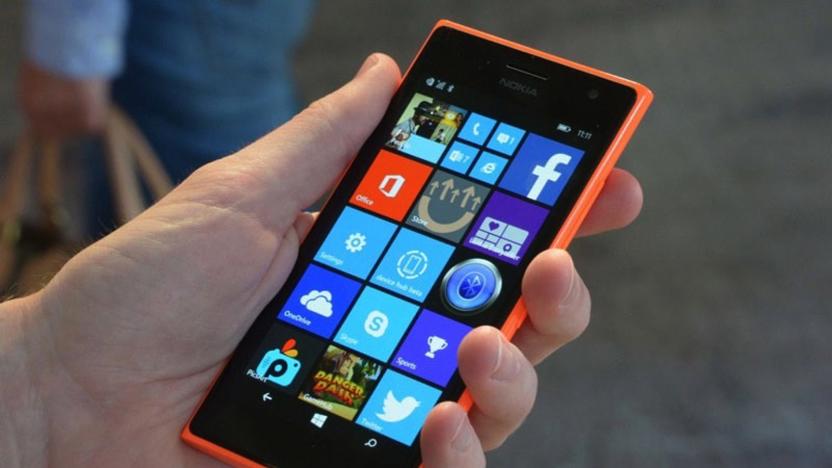
NYPD is already replacing its Windows phones with iPhones
The NYPD is learning a hard lesson about the dangers of buying a declining smartphone platform in bulk. The New York Post understands that the police force is replacing all 36,000 of its officers' Windows phones with iPhones just two years after the rollout began. It's not exactly clear as to why, but Microsoft recently ended support for Windows Phone 8.1 -- the standard-issue Lumia 830 and 640 XL devices won't get any help if something goes wrong. The switch to iPhones also suggests that the NYPD doesn't see a long-term value in upgrading to Windows 10 Mobile.
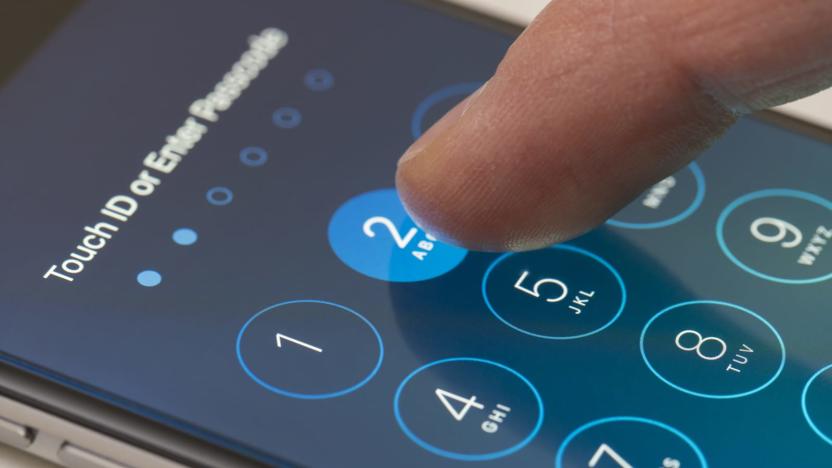
An iOS 11 feature can quickly disable Touch ID
Law enforcement authorities have been at odds with the legal system and mobile companies when it comes to gaining access to citizens' phones. One of the more notable instances was the FBI's attempt to get Apple to unlock the San Bernardino suspect's iPhone, but there have been other similar incidents as well. And situations can get extra tricky when it comes to fingerprint unlocking, especially for those entering the US of late. However, with iOS 11, Apple is giving users an option to easily disable Touch ID, which could be very useful for those in sticky legal situations where they might be compelled to unlock their phone with their fingerprint.
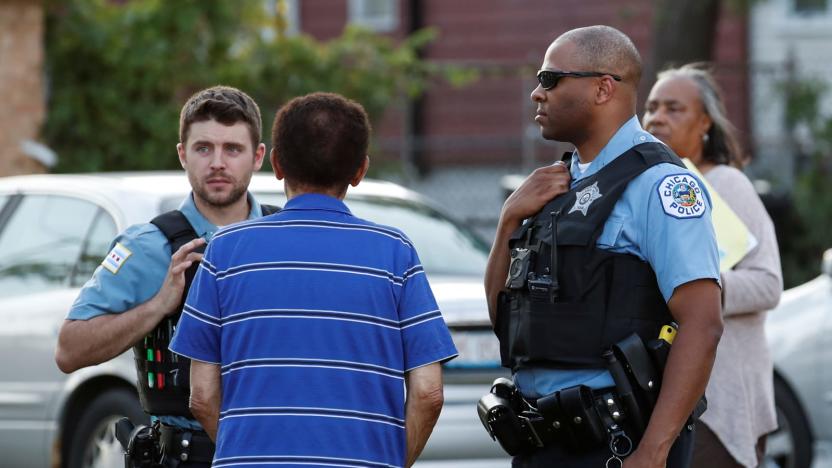
Chicago police see less violent crime after using predictive code
Law enforcement has been trying predictive policing software for a while now, but how well does it work when it's put to a tough test? Potentially very well, according to Chicago police. The city's 7th District police report that their use of predictive algorithms helped reduce the number of shootings 39 percent year-over-year in the first 7 months of 2017, with murders dropping by 33 percent. Three other districts didn't witness as dramatic a change, but they still saw 15 to 29 percent reductions in shootings and a corresponding 9 to 18 percent drop in murders.

Stanford study uses big data to highlight racial biases in policing
A group at Stanford University has taken on the issue of racial bias in law enforcement with an ongoing study called the Open Policing Project. The researchers have also created a website that makes not only their findings available, but all of their data and analysis coding as well.
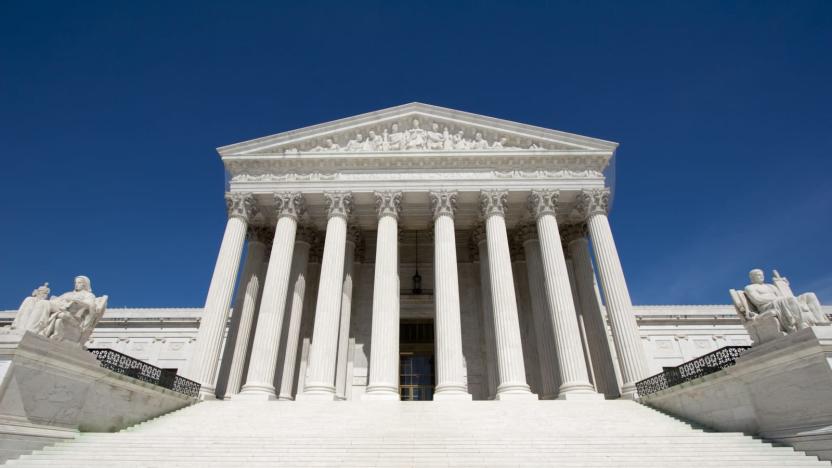
Supreme Court to decide if cellphone location data requires a warrant
The ongoing battle between mobile technology and law enforcement is headed to the Supreme Court. Next term, the justices will decide whether a warrant is required for police to track a suspect through their cellphone records.

Researchers use rideshare vehicles to uncover stingray use
It's a badly kept secret that law enforcement uses fake cell phone towers, called stingrays, that can track phones and eavesdrop on communications. But one research team has taken it upon themselves to sniff them out -- and at a reasonable cost, reports Wired. A group of Seattle-based researchers paid fifteen different rideshare service drivers $25 a week each for two months to drive around with a custom-made device in the back of their car. Called SeaGlass, it had a Raspberry Pi computer, a hotspot, an Android phone, a GPS module and a GSM modem. All totaled, each suitcase-sized box had about $500 worth of equipment inside. The team's mission was to map every cell tower that connected to both the modem and Android phone while the cars were driving through the city.
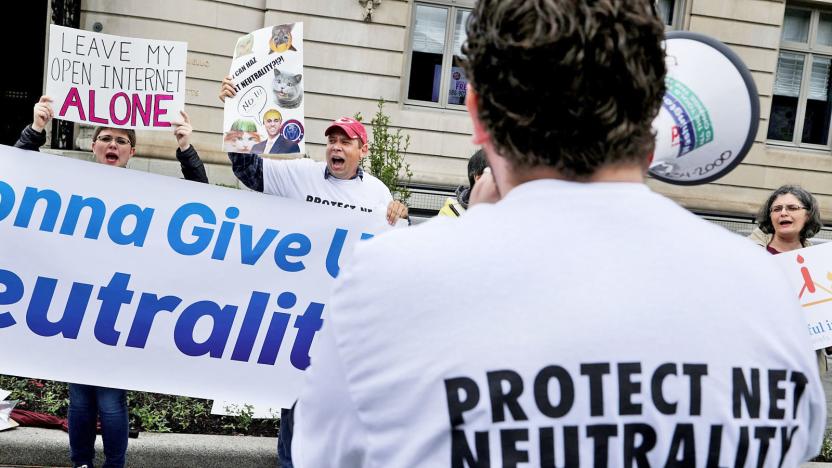
Senators ask FBI to investigate FCC's alleged cyberattack
The FCC isn't exactly forthcoming with evidence of the alleged denial of service attack on its servers, and that's leaving some worried. Is it protecting privacy (as it claims), or stifling attempts to post comments supporting net neutrality? A slew of Senators want to find out -- and they're going above the FCC's head to make sure they get answers. Senators Al Franken, Patrick Leahy, Edward Markey, Brian Schatz and Ron Wyden have sent a letter to FBI Acting Director Andrew McCabe asking his bureau to conduct a high-priority investigation of the FCC's cyberattack claims. While they don't directly accuse the FCC of dishonesty, it's clear from the wording that they aren't just taking the Commission's word at face value.
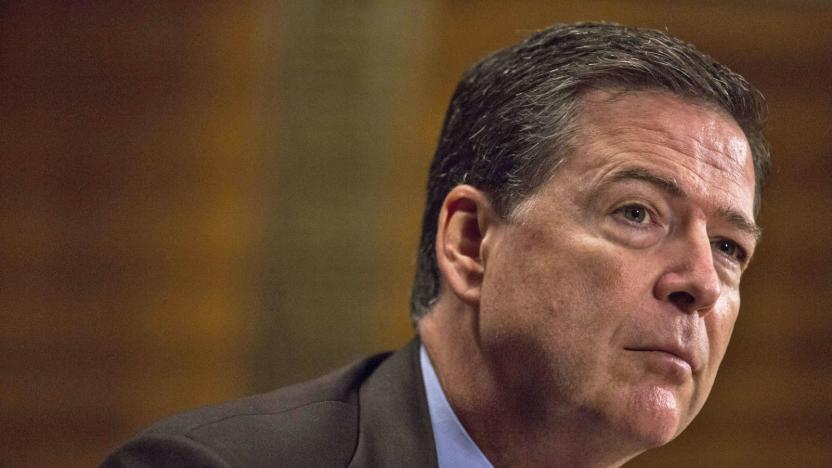
FBI director Comey backs renewed push for decryption law
If you were hoping that FBI Director James Comey had given up on legislation requiring that companies obey court-ordered decryption requests... you're about to be disappointed. In statements at a Senate committee, Comey supported Senator Dianne Feinstein's renewed effort to introduce a bill that would force companies to comply with decryption orders. Feinstein didn't say how close she was to submitting the legislation, but Comey claimed progress from his side. The tech industry had "come to see the darkness a little bit more," he says -- they supposedly understand the potential threat to public safety when law enforcement can't crack a device.
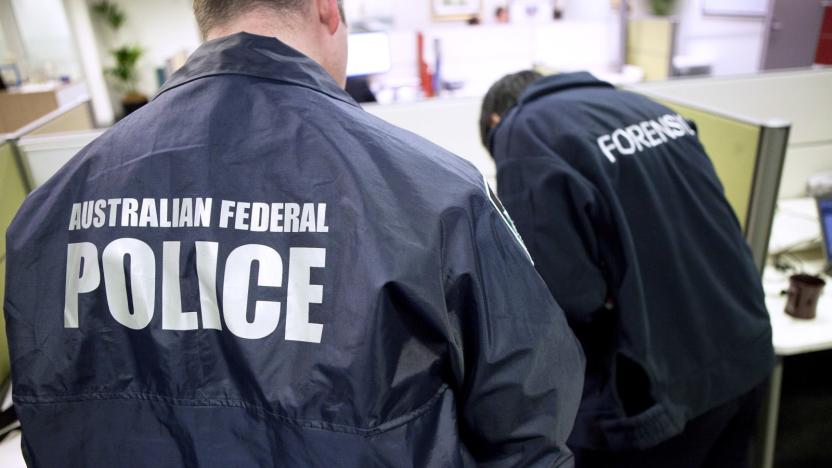
Australian cops broke data law while checking a journalist's calls
There's a good reason why privacy and civil rights advocates object to far-reaching data collection laws: even if most police and spies are well-meaning, it's all too easy for others to abuse their power or make mistakes. And the Australian Federal Police just provided a good example of this problem. The law enforcement agency has admitted that it violated Australia's Telecommunications Interception Act by accessing the data of an unnamed journalist without the necessary special warrant. Officials say the spying was due to "human error" and have mended their ways (including deleting their copy of the data), but this kind of faux pas wouldn't have even been possible if it weren't for the existence of the TIA.

Police will scan every fan's face at the Champions League final
If you're headed to the UEFA Champions League final in Cardiff on June 3rd, you might just be part of a massive experiment in security -- and a privacy uproar. South Wales Police are conducting a face recognition trial that could scan every one of the 170,000 visitors expected to show up in the city for the match, whether or not they're heading to the stadium. Cameras around both the stadium and Cardiff's main train station will compare faces against a police database of 500,000 people of interest. If there's a match, police will get a heads-up that could help them stop a terrorist or frequent hooligan.

UK forms 'specialist squad' to tackle prison drug drones
Training carrier pigeons to fly contraband beyond prison walls is undeniably canny, but these days all you need is an inexpensive drone to do the same job. While perhaps not as reliable, remote-controlled mules carrying drugs and phones into prisons are now a persistent problem for law enforcement. So much so that today the UK government has announced a new "specialist squad of prison and police officers" has been assembled to investigate the flying smugglers.

NYPD details its body camera policy ahead of spring pilot program
After four years of legal wrangling, input from 5,000 active duty officers and 25,000 members of the public, the long-awaited NYPD body camera pilot program is set to begin at the end of the month. On Friday, the department unveiled the rules by which its officers must abide when wearing the new devices and, unlike the 2013 Stop and Frisk case that led to their implementation, these new policy guidelines are surprisingly responsible.

Reddit law enforcement requests have tripled in two years
Reddit has just released its 2016 Transparency Report showing how many times US and foreign governments or law enforcement demanded private user information. Given its size (274 million users) the site is a pretty decent "canary in the coalmine" for privacy and government overreach. If so, governments are getting more nosy: Reddit said it fielded 170 requests for account information, over triple the 55 it received in 2014, the year of its first transparency report.
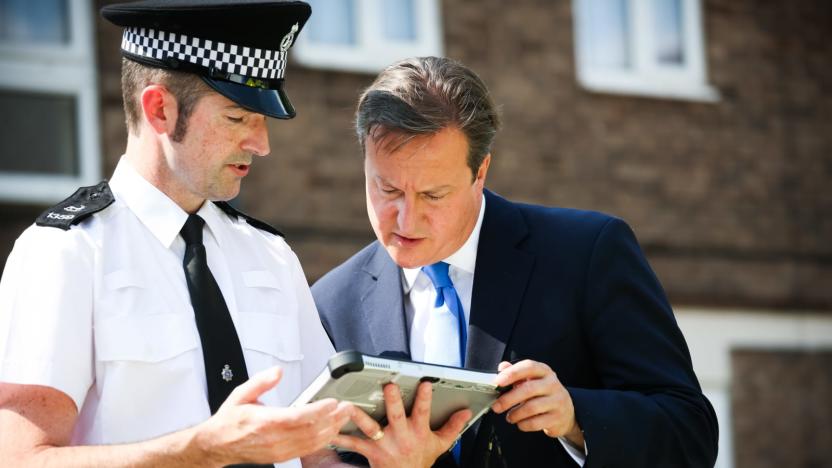
UK police often misuse sensitive data for personal reasons
It's no wonder people are so fervently concerned with privacy when little by little, it seems harder to maintain. You could now be denied entry into the US if you refuse to unlock your phone and hand it over to border agents, for example; and on the more secretive side, London police have just been credibly accused of spying on innocent Greenpeace protestors and journalists for years. While it's hard to avoid becoming numb to stories of clandestine surveillance campaigns and creeping state powers, a recent and illuminating report from The Police Federation of England and Wales details the extent at which officers are routinely breaking data protection laws by using work resources for personal reasons.

London police allegedly used hackers to target activists
If it wasn't already clear why it's a problem when police surveillance goes wrong, it is now. An independent investigator is looking into claims that London's Metropolitan Police used an illegal, roundabout way to access the emails of activists and journalists. An anonymous former worker alleges that a Met intelligence unit took advantage of India "counterparts" that used hackers to obtain email logins for innocent people ranging from Greenpeace protesters to Guardian reporters. The snooping had been going on for a "number of years," according to the insider, and there was reportedly widespread document shredding to cover up the monitoring.

Facebook bars use of its social data for surveillance tools
Twitter now has a key ally in its fight against surveillance tools: its biggest rival. Facebook has updated its policies to explicitly forbid developers from using its data (including Instagram's) to create surveillance tools that target its users. The social network says it has already cracked down on these monitoring platforms for violating existing policies in the past several months, but the new approach theoretically eliminates any ambiguity about the company's views.
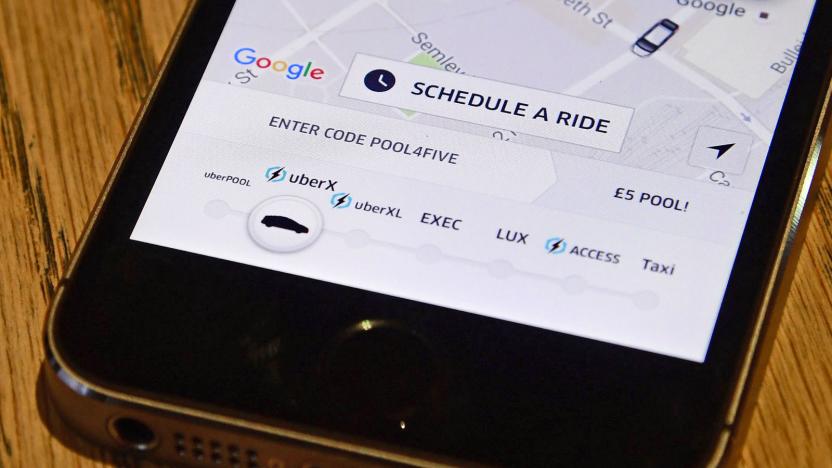
Uber used 'Greyball' tool to evade authorities around the world
Saying this week could've gone better for Uber is a massive understatement. After its SVP resigned over undisclosed sexual harassment investigations and its CEO argued with one of the company's own drivers for complaining about its lower pay, Friday might have seemed like the end of a long few days. It wasn't. The New York Times just released a report revealing Uber's years-long clandestine program to deceive authorities from across the globe.

House bills would ban warrantless use of fake cell sites
House representatives are making good on their plans to implement clearer cellphone surveillance laws. A bipartisan group (led by House Oversight Committee chair Jason Chaffetz) has put forward two bills that would keep the use of Stingrays and other cell site simulators in check. The most prominent, the Cell Location Privacy Act, would require that law enforcement get a probable cause warrant before using one of these fake cell sites to track suspects. There would be exceptions for "exigent circumstances" and foreign intelligence gathering.

Taser bought two computer vision AI companies
Law enforcement agencies across the country are adopting body-worn cameras as a means both of increasing their transparency with the public and generating actionable feedback to improve officer performance. Problem is, all these body cams produce terabytes of data daily, far more than many departments can effectively handle. That's why Taser (yes those guys, they make body cameras too) announced on Thursday that it has acquired a pair of companies that specialize in computer- and machine-vision to create the "Axon AI" group. Together, they'll develop a platform that can efficiently parse this flood of data in real time.






